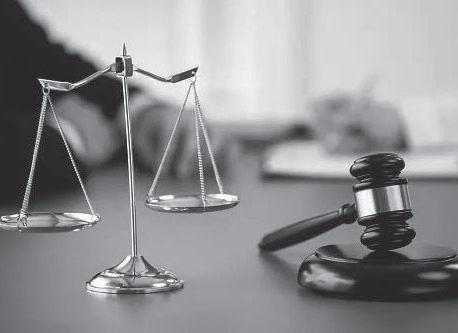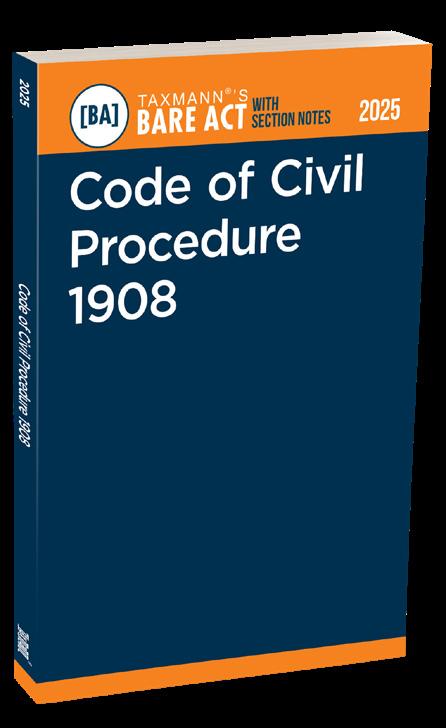SUITS IN PARTICULAR CASES
PART VII APPEALS
110. [Omitted by the Code of Civil Procedure (Amendment) Act, 1973, w.e.f. 29-11-1973]
[Omitted by the Adaptation of Laws
the
MISCELLANEOUS
FIRST SCHEDULE
INSTITUTION
14. Production of document
[Omitted by
16. Suits on lost negotiable
17. Production of shop-book
18.
6A.
6B.
6C.
6D.
6E.
6F.
8A. [Omitted
9.
10.
ORDER VIII
ORDER IX
APPEARANCE OF PARTIES AND CONSEQUENCE OF NON-APPEARANCE
1. Parties to appear on day fixed in summons for
2. Dismissal of suit where summons not served in consequence of plaintiff’s failure to pay costs
3. Where neither party appears, suit to be
4. Plaintiff may bring fresh suit or Court may restore suit to file
5. Dismissal of suit where plaintiff, after summons returned unserved, fails for seven days to apply for fresh
6.
ORDER X
EXAMINATION OF PARTIES BY THE COURT
1C.
2.
4.
ORDER XI
DISCOVERY AND INSPECTION
1.
2.
3.
4.
5.
6.
7.
17.
ORDER XII
ADMISSIONS
1.
2A. Document to be deemed to be admitted if not denied after service of notice to admit documents
ORDER XIII
PRODUCTION, IMPOUNDING AND RETURN OF DOCUMENTS
1. Original documents to be produced at or before the settlement of issues
2. [Omitted by the Code of Civil Procedure (Amendment) Act, 1999, w.e.f. 1-7-2002]
3.
7.
8. Court
ORDER XIV
SETTLEMENT
from
5.
ORDER XV
DISPOSAL OF
1.
HEARING
ORDER XVI
SUMMONING AND ATTENDANCE OF WITNESSES
1.
21.
ORDER XVI-A
ATTENDANCE OF WITNESSES CONFINED
DETAINED IN PRISONS
14. [Omitted by the
15.
ORDER XIX
AFFIDAVITS
1.
ORDER
JUDGMENT
5A. Court to inform parties as to where an appeal lies in cases where parties are not represented by pleaders
6.
6A.
3.
ORDER XX-A COSTS
ORDER XXI
EXECUTION OF DECREES AND ORDERS
32.
33.
and judgment-debtor
Mode of execution
46C.
46D.
46H.
46-I.
47.
48.
48A.
56.
58.
62. [Omitted by the Code of Civil Procedure (Amendment) Act, 1976, w.e.f. 1-2-1977]
63. [Omitted by the Code of Civil Procedure (Amendment) Act, 1976, w.e.f. 1-2-1977]
70. [Omitted by the Code of Civil Procedure (Amendment) Act, 1956, w.e.f. 1-1-1957]
71.
72.
78.
79.
93.
97.
100.
101.
ORDER XXII
DEATH, MARRIAGE AND INSOLVENCY OF PARTIES
1.
2.
3.
10.
ORDER XXIII
WITHDRAWAL AND ADJUSTMENT OF SUITS
1. Withdrawal of suit or abandonment of part of claim
1A. When transposition of defendants as plaintiffs may be permitted
2. Limitation law not affected by first suit
3. Compromise of suit
3A. Bar to suit
3B. No agreement or compromise to be entered in a representative suit without leave of Court
4. Proceedings in execution of decrees
PAYMENT INTO COURT
3. Interest on deposit not allowed to
4. Procedure where plaintiff accepts deposit as satisfaction in part
– Procedure where he accepts it as satisfaction in full
ORDER XXV
SECURITY FOR COSTS
1. When security for costs may be required from plaintiff
2. Effect of failure to furnish security
ORDER XXVI
COMMISSIONS
Commissions
1.
4. Persons for whose examination commission may
4A. Commission for examination of any person resident within the local limits of the jurisdiction of the Court
1.
1.
3.
4.
by next friend or guardian for the suit of property under decree
5.
6.
INTERPLEADER
ORDER XXXVII
SUMMARY PROCEDURE
1.
5.
6.
7.
ORDER XXXVIII
ARREST AND ATTACHMENT BEFORE JUDGMENT
5.
by Court which
6. Security in case of order for execution of decree appealed from
7. [Omitted by the Government of India (Adaptation of Indian Laws) Order, 1937]
8. Exercise of powers in appeal from order made in execu tion of decree
Procedure on admission of appeal
9. Registry of memorandum of appeal
10.
11.
13. [Omitted by the Code of Civil Procedure (Amendment) Act, 1999, w.e.f. 1-7-2002]
14. Publication and service of notice of day for hearing appeal
15. [Omitted by the Code of Civil Procedure (Amendment) Act, 1999, w.e.f.
[Omitted by the Code of Civil Procedure (Amendment) Act, 1999, w.e.f. 1-7-2002
21. Re-hearing on application of respondent against whom ex parte decree
24. Where evidence on record sufficient, Appellate Court may determine case finally
1.
1. “Decree”
3.
REFERENCE
1.
4A. Reference to High Court under proviso to section 113
5. Power to alter, etc., decree of Court making reference
6. Power to refer to High Court questions as to jurisdiction in small causes
7. Power to District Court to submit for revision proceedings had under mistake as to jurisdiction in small causes
ORDER XLVII
REVIEW
1. Application for review of judgment
2. [Omitted by the Code of Civil Procedure (Amendment) Act, 1956, w.e.f. 1-1-1957]
3. Form of applications
4. Application
5. Application for review in Court consisting of two or more Judges
6. Application where rejected
7. Order of rejection not appealable - Objections to order granting application
8. Registry of application granted, and order for re-hearing
9. Bar of certain applications
1.
2.
1.
ORDER XLIX
CHARTERED HIGH COURTS
3. Application of rules
FOURTH SCHEDULE
ENACTMENTS AMENDED
[Repealed by the Repealing and Amending Act, 1952, w.e.f. 2-8-1952] 454
FIFTH SCHEDULE
ENACTMENTS AMENDED
[Repealed by the Second Repealing and Amending Act, 1914] 454
Code of Civil Procedure, 1908
[5 OF 1908]†
An Act to consolidate and amend the laws relating to the procedure of the Courts of Civil Judicature.
WHEREAS it is expedient to consolidate and amend the laws relating to the procedure of the Courts of Civil Judicature; it is hereby enacted as follows:—
PRELIMINARY
Short title, commencement and extent.
1. (1) This Act may be cited as the Code of Civil Procedure, 1908.*
(2)It shall come into force on the first day of January, 1909.
1[(3) It extends to the whole of India except—
(a) 2[* * *]
(b) the State of Nagaland and the tribal areas:
*21-3-1908.
†It has been extended to and brought into force in the State of Manipur w.e.f. 1-1-1957 by Act 30 of 1950.
It has been extended to the Districts of Koraput and Ganjam Agency by Orissa Regulation 5 of 1951.
It has been extended, with modification to Laccadive, Minicoy and Amindivi Islands w.e.f. 1-10-1967 by Regulation 8 of 1965 and Schedule, to Goa, Daman and Diu w.e.f. 15-6-1966 by Act 30 of 1965 and State of Sikkim w.e.f. 1-9-1984 vide Notification No. S.O. 599(E), dated 13-8-1984.
1. Substituted by the Code of Civil Procedure (Amendment) Act, 1976, w.e.f. 1-2-1977. Earlier, it was substituted by the Code of Civil Procedure (Amendment) Act, 1951, w.e.f. 1-4-1951 and later on amended by the Union Territories (Laws) Amendment Act, 1956, w.e.f. 1-1-1957.
2. Omitted by the Jammu and Kashmir Reorganisation Act, 2019, w.e.f. 31-10-2019. Prior to its omission, clause (a) read as under:
“(a) the State of Jammu and Kashmir;”
Provided that the State Government concerned may, by notification in the Official Gazette, extend the provisions of this Code or any of them to the whole or part of the State of Nagaland or such tribal areas, as the case may be, with such supplemental, incidental or consequential modifications as may be specified in the notification.
Explanation.— In this clause, “tribal areas” means the territories which, immediately before the 21st day of January, 1972, were included in the tribal areas of Assam as referred to in paragraph 20 of the Sixth Schedule to the Constitution.
(4) In relation to the Amindivi Islands, and the East Godavari, West Godavari and Visakhapatnam Agencies in the State of Andhra Pradesh and the Union territory of Lakshadweep, the application of this Code shall be without prejudice to the application of any rule or regulation for the time being in force in such Islands, Agencies or such Union territory, as the case may be, relating to the application of this Code.]
COMMENTS
SECTION NOTES
Title of the Act: The Code is officially called the “Code of Civil Procedure, 1908”.
Date of Commencement: The CPC came into force on 1st January 1909.
Extent of Application
Geographical Scope: The CPC extends to the whole of India, except for specific following exclusions:
State of Nagaland; and
Tribal areas: The term “tribal areas” refers to the regions that, before 21st January 1972, were part of the tribal areas of Assam under the Sixth Schedule to the Constitution of India.
The State Government in Nagaland and in any tribal areas can, by issuing a notification in the Official Gazette, extend the provisions of the CPC (either in whole or in part) to their regions.
The notification can also specify any supplemental, incidental, or consequential modifications necessary to adapt the provisions to local needs.
Special Areas with Existing Regulations: The CPC applies in certain territories, such as the Amindivi Islands, the East Godavari, West Godavari, and Visakhapatnam Agencies in Andhra Pradesh, and the Union Territory of Lakshadweep, with some additional considerations.
Coexistence with Local Rules: The application of the CPC in these areas does not override any existing rules or regulations specific to those regions. This means that if there are local laws or practices that govern civil procedures in these areas, those will continue to apply, alongside or in addition to the provisions of the CPC.
2. In this Act, unless there is anything repugnant in the subject or context,—
(1) “Code” includes rules;
(2) “decree” means the formal expression of an adjudication which, so far as regards the Court expressing it, conclusively determines the rights of the parties with regard to all or any of the matters in controversy in the suit and may be either preliminary or final. It shall be deemed to include the rejection of a plaint and the determination of any question within 3[***] section 144, but shall not include—
(a) any adjudication from which an appeal lies as an appeal from an order, or
(b) any order of dismissal for default.
Explanation.—A decree is preliminary when further proceedings have to be taken before the suit can be completely disposed of. It is final when such adjudication completely disposes of the suit. It may be partly preliminary and partly final;
(3) “decree-holder” means any person in whose favour a decree has been passed or an order capable of execution has been made;
(4) “district” means the local limits of the jurisdiction of a principal Civil Court of original jurisdiction (hereinafter called a “District Court”), and includes the local limits of the ordinary original civil jurisdiction of a High Court;
4[(5) “foreign Court” means a Court situate outside India and not established or continued by the authority of the Central Government;]
(6) “foreign judgment” means the judgment of a foreign Court;
(7) “Government pleader” includes any officer appointed by the State Government to perform all or any of the functions expressly imposed by this Code on the Government Pleader and also any Pleader acting under the directions of the Government Pleader;
4a[(7A) “High Court”, in relation to the Andaman and Nicobar Islands, means the High Court in Calcutta;
(7B) “India”, except in sections 1, 29, 43, 44, 5[44A,] 78, 79, 82, 83 and 87A, means the territory of India excluding the State of Jammu and Kashmir];
(8) “Judge” means the presiding officer of a Civil Court;
3. Words and figures “section 47 or” omitted by the Code of Civil Procedure (Amendment) Act, 1976, w.e.f. 1-2-1977.
4. Substituted by the Code of Civil Procedure (Amendment) Act, 1951, w.e.f. 1-4-1951.
4a. Clauses (7A) and (7B) inserted by the Code of Civil Procedure (Amendment) Act, 1951, w.e.f. 1-4-1951.
5. Inserted by the Repealing and Amending Act, 1953, w.e.f. 23-12-1953.
(9) “judgment” means the statement given by the Judge on the grounds of a decree or order;
(10) “judgment-debtor” means any person against whom a decree has been passed or an order capable of execution has been made;
(11) “legal representative” means a person who in law represents the estate of a deceased person, and includes any person who intermeddles with the estate of the deceased and where a party sues or is sued in a representative character the person on whom the estate devolves on the death of the party so suing or sued;
(12) “mesne profits” of property means those profits which the person in wrongful possession of such property actually received or might with ordinary diligence have received therefrom, together with interest on such profits, but shall not include profits due to improvements made by the person in wrongful possession;
(13) “movable property” includes growing crops;
(14) “order” means the formal expression of any decision of a Civil Court which is not a decree;
(15) “pleader” means any person entitled to appear and plead for another in Court and includes an advocate, a vakil and an attorney of a High Court;
(16) “prescribed” means prescribed by rules;
(17) “public officer” means a person falling under any of the following descriptions, namely :—
(
a) every Judge;
(b) every member of 6[an All-India Service];
(c) every commissioned or Gazetted Officer in the military “naval or air forces of the Union while serving under the Government”;
(d) every officer of a Court of Justice whose duty it is, as such officer, to investigate or report on any matter of law or fact, or to make, authenticate or keep any document, or to take charge or dispose of any property, or to execute any judicial process, or to administer any oath, or to interpret, or to preserve order, in the Court, and every person especially authorised by a Court of Justice to perform any of such duties;
(e) every person who holds any office by virtue of which he is empowered to place or keep any person in confinement;
(f) every officer of the Government whose duty it is, as such officer, to prevent offences, to give information of offences, to bring offenders to justice, or to protect the public health, safety or convenience;
6. Substituted for “the Indian Civil Service” by the Code of Civil Procedure (Amendment) Act, 1976, w.e.f. 1-2-1977.
(g) every officer whose duty it is, as such officer, to take, receive, keep or expend any property on behalf of the Government, or to make any survey, assessment or contract on behalf of the Government, or to execute any revenue process, or to investigate, or to report on, any matter affecting the pecuniary interests of the Government, or to make, authenticate or keep any document relating to the pecuniary interests of the Government, or to prevent the infraction of any law for the protection of the pecuniary interests of the Government; and
(h) every officer in the service or pay of the Government, or remunerated by fees or commission for the performance of any public duty;
(18) “rules” means rules and forms contained in the First Schedule or made under section 122 or section 125;
(19) “share in a Corporation” shall be deemed to include stock, debenture stock, debentures or bonds; and
(20) “signed”, save in the case of a judgment or decree, includes stamped.
(21) 7[***]
COMMENTS
SECTION NOTES
2.1 “Decree” [Sub-section 2]
A decree is the formal expression of an adjudication by the court, which conclusively determines the rights of the parties concerning the matters in dispute in the suit.
Types of decree:
Preliminary: When further proceedings are required to dispose of the suit entirely.
Final: When the adjudication concludes the entire suit.
Partly Preliminary and Partly Final: Some issues are conclusively resolved, while others require further proceedings.
Inclusive Provision. A decree is deemed to include:
Rejection of a plaint (a formal written complaint or petition), and Determinations under section 144 (related to the execution of decrees).
Exclusions:
A decree does not include adjudications from which an appeal lies, as an appeal from an order.
It also excludes an order of dismissal for default (e.g., if a case is dismissed due to the absence of a party or failure to pursue the case).
7. Omitted by the Code of Civil Procedure (Amendment) Act, 1951 w.e.f. 1-4-1951. Earlier clause (21) was inserted by the Adaptation of Laws Order, 1950.
“District” [Sub-section 4]
A district refers to the local jurisdiction of a Principal Civil Court of Original Jurisdiction (commonly known as a District Court).
It also includes the jurisdiction of the ordinary original civil jurisdiction of a High Court.
2,2 Legal Representative
Section 2(11) defines a legal representative is a person who in law represents the estate of a deceased person.
Inclusive Provisions
Any person who intermeddles with the estate of the deceased is considered a legal representative.
Intermeddling refers to actions such as managing, using, or dealing with the property of the deceased without formal legal authority.
Representative Character in Legal Proceedings: If a party sues or is sued in a representative capacity, the legal representative includes the person upon whom the estate devolves upon the party’s death.
2.3 Mesne Profits
Section 2(12) define Mesne profits as profits that the person in wrongful possession of property actually received or could have received with ordinary diligence, along with any interest on those profits.
It does not include profits from any improvements made by the wrongdoer during their possession.
Subordination of Courts.
3. For the purposes of this Code, the District Court is subordinate to the High Court, and every Civil Court of a grade inferior to that of a District Court and every Court of Small Causes is subordinate to the High Court and District Court.
COMMENTS
SECTION NOTES
3.1 Subordination of Courts
Section 3 lays down that for the purpose of this Code: The District Court is subordinate to the High Court.
Every Civil Court of a grade inferior to that of a District Court is subordinate to District Court and High Court.
A Court of Small Causes is also subordinate to both the District Court and the High Court.
Savings.
4. (1) In the absence of any specific provision to the contrary, nothing in this Code shall be deemed to limit or otherwise affect any special or local law
now in force or any special jurisdiction or power conferred, or any special form of procedure prescribed, by or under any other law for the time being in force.
(2) In particular and without prejudice to the generality of the proposition contained in sub-section (1), nothing in this Code shall be deemed to limit or otherwise affect any remedy which a landholder or landlord may have under any law for the time being in force for the recovery of rent of agricultural land from the produce of such land.
Application of the Code to Revenue Courts.
5. (1) Where any Revenue Courts are governed by the provisions of this Code in those matters of procedure upon which any special enactment applicable to them is silent, the State Government may, by notification in the Official Gazette, declare that any portions of those provisions which are not expressly made applicable by this Code shall not apply to those Courts, or shall only apply to them with such modifications as the State Government may prescribe.
(2) “Revenue Court” in sub-section (1) means a Court having jurisdiction under any local law to entertain suits or other proceedings relating to the rent, revenue or profits of land used for agricultural purposes, but does not include a Civil Court having original jurisdiction under this Code to try such suits or proceedings as being suits or proceedings of a civil nature.
COMMENTS
SECTION NOTES
Section 5 deals with the procedural provisions applicable to Revenue Courts under the specified legal framework:
Sub-section (1) specifies that where special enactments governing Revenue Courts are silent on procedural matters, the provisions of the general Code (likely referring to the Civil Procedure Code or an analogous procedural code) will apply.
The State Government is empowered to issue notifications in the Official Gazette. Through such notifications, the State Government may:
Exclude specific procedural provisions of the Code from applying to Revenue Courts.
Prescribe modifications to those procedural provisions for application in Revenue Courts.
Sub-section (2) defines “Revenue Court” as a court with jurisdiction under local laws to handle cases relating to:
Rent Revenue
Profits of agricultural land
Exclusion of Civil Courts: Civil Courts with original jurisdiction under the general Code are explicitly excluded from the definition of “Revenue Court.”
Pecuniary jurisdiction.
6. Save insofar as is otherwise expressly provided, nothing herein contained shall operate to give any Court jurisdiction over suits the amount or value of
the subject-matter of which exceeds the pecuniary limits (if any) of its ordinary jurisdiction.
COMMENTS
SECTION NOTES
6.1 Pecuniary Jurisdiction
Section 6 of the Code of Civil Procedure, 1908 (CPC) addresses the pecuniary jurisdiction of courts, which refers to the monetary limit up to which a court can hear and decide cases.
General Principle
This provision stipulates that no court has the jurisdiction to hear a civil suit if the amount or value of the subject-matter of the suit exceeds the pecuniary limits prescribed for that court’s jurisdiction, unless there is an express provision allowing otherwise.
Provincial Small Cause Courts.
7. The following provisions shall not extend to Courts constitut ed under the Provincial Small Cause Courts Act, 1887 (9 of 1887), or under the Berar Small Cause Courts Law, 1905, or to Courts exercising the jurisdiction of a Court of Small Causes under the said Act or law, 8[or to Courts in 9[any part of India to which the said Act does not extend] exercising a corresponding jurisdiction] that is to say,—
(a) so much of the body of the Code as relates to—
(i) suits excepted from the cognizance of a Court of Small Causes;
(ii) the execution of decrees in such suits;
(iii) the execution of decrees against immovable property; and
(b) the following sections, that is to say,— section 9, sections 91 and 92, sections 94 and 95 so far as they authorise or relate to—
(i) orders for the attachment of immovable property, (ii) injunctions,
(iii) the appointment of a receiver of immovable property, or (iv) the interlocutory orders referred to in clause (e) of section 94, and sections 96 to 112 and 115.
8. Inserted by the Code of Civil Procedure (Amendment) Act, 1951, w.e.f. 1-4-1951.
9. Substituted for “Part B States” by the Adaptation of Laws (No. 2) Order, 1956.
Presidency Small Cause Courts.
8. Save as provided in sections 24, 38 to 41, 75, clauses (a), (b) and (c), 76, 10[77, 157 and 158], and by the Presidency Small Cause Courts Act, 1882 (15 of 1882), the provisions in the body of this Code shall not extend to any suit or proceeding in any Court of Small Causes established in the towns of Calcutta, Madras and Bombay :
Provided that—
(
1) the High Courts of Judicature at Fort William, Madras and Bombay, as the case may be, may from time to time, by notification in the Official Gazette, direct that any such provisions not inconsistent with the express provisions of the Presidency Small Cause Courts Act, 1882 (15 of 1882), and with such modifications and adaptations as may be specified in the notification, shall extend to suits or proceedings or any class of suits or proceedings in such Court;
(
2) all rules heretofore made by any of the said High Courts under section 9 of the Presidency Small Cause Courts Act, 1882 (15 of 1882), shall be deemed to have been validly made.
PART I
SUITS IN GENERAL
Jurisdiction of the Courts and res judicata
Courts to try all civil suits unless barred.
9. The Courts shall (subject to the provisions herein contained) have jurisdiction to try all suits of a civil nature excepting suits of which their cognizance is either expressly or impliedly barred.
Explanation 11[I].—A suit in which the right to property or to an office is contested is a suit of a civil nature, notwithstanding that such right may depend entirely on the decisions of questions as to religious rites or ceremonies.
12[Explanation II : For the purposes of this section, it is immaterial whether or not any fees are attached to the office referred to in Explanation I or whether or not such office is attached to a particular place.]
COMMENTS
SECTION NOTES
9.1
Jurisdiction of Civil Courts
Section 9 defines the jurisdiction of civil courts in India. It declares that courts shall have jurisdiction to try all suits of a civil nature.
10. Substituted for “77 and 155 to 158” by the Code of Civil Procedure (Amendment) Act, 1976, w.e.f. 1-2-1977.
11. Renumbered as Explanation I by the Code of Civil Procedure (Amendment) Act, 1976, w.e.f. 1-2-1977.
12. Inserted, ibid.
However, the jurisdiction of the courts is subject to following limitations:
Other provisions mentioned in this Code: For instance, principle of Res judicata under section 11 CPC and other provisions of the Code have to be seen while determining the competency of the civil court to try suits of civil nature.
The courts cannot try those suits of civil nature whose cognizance is either expressly or impliedly barred.
Nature of Civil Suits Involving Religious Rights: Explanation I clarifies that a suit in which right to property or to an office is contested will still be considered a suit of civil nature, even if such right to the property or office depends on the decision of questions regarding religious rites or ceremonies.
Explanation II further emphasizes that the suit as referred in explanation I, continues to be a suit of civil nature irrespective of the fact that the office contested has any fees attached to it or not.
Also, it is further immaterial whether such office is attached to particular place or not. The civil nature of the suit depends on the subject matter of the dispute, not the location of the office or whether the office involves any financial compensation.
Stay of suit.
10. No Court shall proceed with the trial of any suit in which the matter in issue is also directly and substantially in issue in a previously instituted suit between the same parties, or between parties under whom they or any of them claim litigating under the same title where such suit is pending in the same or any other Court in 13[India] having jurisdiction to grant the relief claimed, or in any Court beyond the limits of 13[India] established or continued by the Central Government and having like jurisdiction, or before the Supreme Court.
Explanation.—The pendency of a suit in a foreign Court does not preclude the Courts in 13[India] from trying a suit founded on the same cause of action.
COMMENTS
SECTION NOTES
10.1
Conditions for Stay of Suit
Section 10 of the Code of Civil Procedure, 1908 (CPC) addresses the issue of duplicity of suits involving the same subject matter and the same parties. This prevents the court from proceeding with the second suit while the first suit is still pending.
It states that Court shall not proceed with trial of any suit if following conditions exists:
There is a previously instituted suit on the same subject matter pending in a court. This court can be same court in which present suit is filed or any other court in India having jurisdiction to grant the relief claimed, or
13. Substituted for “the States” by the Code of Civil Procedure (Amendment) Act, 1951, w.e.f. 1-4-1951.










